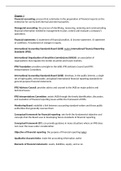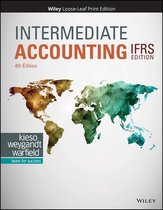Samenvatting
Summary Most important concepts Intermediate Financial Accounting
- Instelling
- Tilburg University (UVT)
Dit document bevat de belangrijkste concepts/begrippen uit het boek "Intermediate Accounting - IFRS". (Bevat soms Nederlandse tekst om het begrip of het concept te verduidelijken)
[Meer zien]





